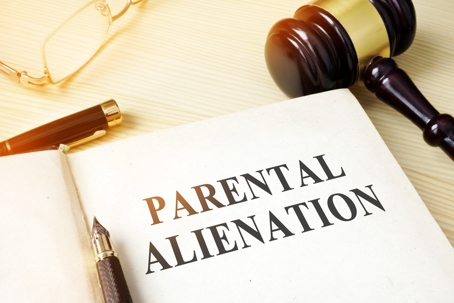BACKGROUND
This case involves a parenting dispute between Mr. Chakraborty (the “Father”) and Ms. Phenix (the “Mother”) concerning their two teenage children, now ages 15 and 16.
The children have consistently expressed a strong preference against having parenting time with their Father, citing distressing past experiences, including a serious incident where he threatened to kill both them and their Mother—an event that resulted in a criminal conviction. The Office of the Children’s Lawyer (“OCL”) has been involved to assess the children’s views and relay them to the Court. Throughout the litigation, the children have firmly stated that they do not wish to engage with their Father, feeling pressured to do so against their will.
A Final Order dated June 12, 2018, granted the Mother sole decision-making responsibility with supervised parenting time for the Father. In November 2023, the Mother brought a Motion to Change, requesting that the children’s parenting time with the Father be left to their discretion, considering their ages and maturity. At this point, the children had not seen their Father in person for eight years.
The Court deferred a final decision on parenting arrangements to allow the Father time to address issues impacting his relationship with the children. While he expressed a desire to reconnect, the Court found that his ongoing behaviour—particularly his tendency to deflect responsibility and his failure to address his prior aggressive conduct—continued to alienate the children. The Father assured the Court he would pursue counseling to demonstrate his commitment to change, with the hope that this might create conditions conducive to adjusting the parenting arrangements.
In May 2024, the parties and OCL filed their final written arguments on the children’s parenting time with their Father. At the hearing, the Father argued that he was entitled to resume contact, asserting that the children’s estrangement was the result of the Mother’s influence, rather than his own behaviour. The Mother, however, argued that the children’s preferences were independently formed based on their experiences, as clearly communicated to the OCL. She maintained that the Father had failed to fulfill his commitment to counseling and had not demonstrated any meaningful behavioural changes. The OCL, representing the children, confirmed their preference to have no contact with their Father, expressing that their views were firm and based on personal experiences with him.
ANALYSIS
What Parenting Order is in the Children’s Best Interest?
The Court must make a Parenting Order that, based on the evidence, serves the best interests of the children. The factors for determining best interests are outlined in The Children's Law Reform Act, R.S.O. 1990, c. C.12, s. 24(3), and the Divorce Act, R.S.C. 1985, c.3 (2nd Supp.), s. 16. Under s. 16(2) of the Divorce Act, the Court’s primary consideration must be the “child(ren)'s physical, emotional, and psychological safety, security, and well-being.” In doing so, the Court must assess all relevant factors, determining the appropriate weight for each.
One important factor is the views and preferences of the children, which should be given due weight based on their age and maturity. Courts generally give considerable weight to the views of teenagers, especially when they are mature and doing well.
In this case, the Court found that the two children, now young adults, are both intelligent, articulate, and mature enough to clearly express their own views.
The Court noted the Father’s persistent minimization of his past actions and his failure to take responsibility for the harm caused by his prior behaviour, including his threats against the family. Despite his stated commitment to counseling, the evidence indicated he had not meaningfully engaged in self-improvement. The Court also observed that the Father remained focused on his perceived entitlements and on blaming the Mother, rather than acknowledging his role in the children’s unwillingness to have contact with him.
Based on the evidence, the Court concluded that the children’s views were rooted in genuine personal experiences and expressed independently of external influence. As a result, the Court ruled that the children should have sole discretion in deciding whether and when to initiate contact with their Father.

